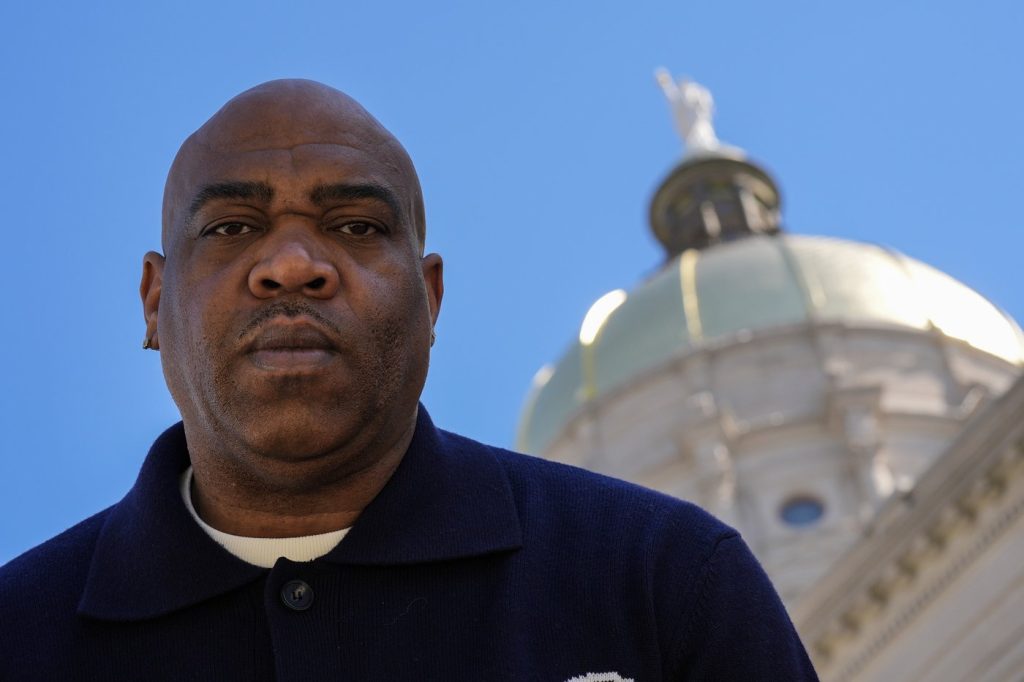ATLANTA (AP) – In Georgia, there is an ongoing legislative effort to compensate individuals who were wrongfully convicted and spent years behind bars. Michael Woolfolk, who is 45 years old, has made three attempts to receive compensation for the 19 years he served due to a 2002 murder conviction before the charges were dismissed. He is not alone; Daryl Lee Clark, also 45, spent 25 years in prison for a 1998 murder conviction that was vacated due to various legal and police errors, and he is seeking compensation for the second time.
Georgia stands out as one of 11 states without a law to compensate those wrongfully convicted. In this state, individuals must appeal to the legislature for compensation, often relying on lawmakers to sponsor resolutions. This political process can complicate and delay the compensation they rightly deserve. Recently, discussions have emerged about transitioning the decision-making power to judges, although the prospects of passing this legislation remain uncertain for the current year.
Representative Katie Dempsey, a Republican and sponsor of a Georgia compensation bill, emphasized the necessity of helping those who have lost years of their lives and the ability to achieve personal stability. “Many are at the age where they would be looking at their savings, and instead, there’s none,” she stated. Recognizing the gravity of the situation, other states are also reconsidering their compensation laws. Missouri has sent an updated bill to the governor, while Florida and Oregon are evaluating their compensation frameworks, and Montana seeks to revive an expired program. Pennsylvania, like Georgia, is looking to establish a new compensation law.
Since 1989, 1,739 individuals have filed wrongful compensation claims under state laws, with 1,328 receiving compensation. However, this figure does not cover cases in states like Georgia without a defined process. As of now, only 12 Georgians have received compensation since 1995, while at least 11 additional cases have been pursued. Critics argue that even some with compelling cases have been rejected due to the difficulty of convincing legislators of their innocence.
The current proposal in Georgia necessitates individuals to demonstrate their innocence to an administrative law judge. Compensation could include $75,000 for each year spent incarcerated, as well as reimbursement for additional costs such as fines and fees. There is also a provision for an extra $25,000 for every year spent awaiting a death sentence. Such legal frameworks are crucial, according to Democratic Representative Scott Holcomb, who wants to rectify the injustice faced by wrongfully convicted individuals.
The challenge often arises over the definitions of innocence—whether the individual was released due to a “not guilty” finding or because of judicial or law enforcement errors. Advocates argue that all wrongfully convicted individuals deserve compensation, but some lawmakers express reluctance to provide funds. For example, Senate Majority Whip Randy Robertson has opposed compensation requests in the past, arguing against the term “exonerated,” applying it too liberally to cases with overturned convictions based on judicial errors.
In contrast, initiatives in other states echo the discussion in Georgia. Florida currently bars exonerees with prior felony convictions from receiving compensation, a rule Senator Jennifer Bradley is attempting to amend. She argues that unrelated past charges should not inhibit compensation for those wronged by state actions. In Oregon, a legislative update seeks to enhance a law from 2022, promising $65,000 for each year of wrongful imprisonment, following criticisms of inadequate compensation for exonerees. Furthermore, Missouri recently advanced a proposal to increase daily compensation for wrongful imprisonment, aiming to remove stringent requirements for proving innocence.
Despite the hope for legislative reform, many Georgia lawmakers express a reluctance to assume judicial responsibilities, desiring a streamlined process for resolving compensation claims. As the legislative session approaches its end on April 4, the future for individuals like Woolfolk and Clark remains uncertain. Woolfolk, who has dedicated much effort to persuading lawmakers, reflects on the difficulties of starting anew at the age of 45 and the lost opportunity to be present in his children’s upbringing. Meanwhile, Clark remains optimistic, hoping for assistance after receiving applause from House lawmakers during a prior compensation vote.
As developments unfold, the fate of compensation for the wrongfully convicted in Georgia continues to hang in the balance.










